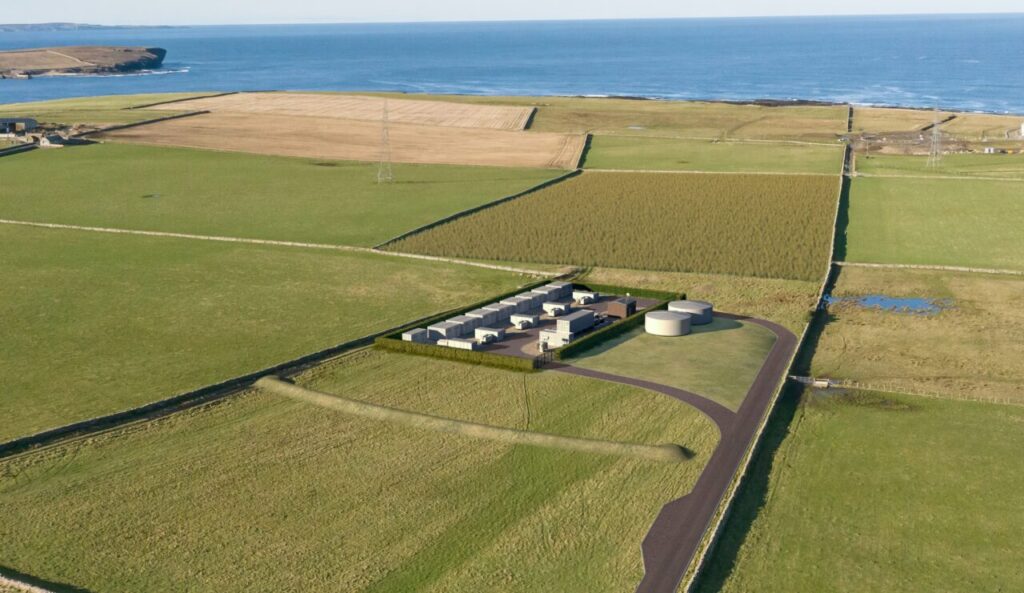
Root-Power has received planning permission for a 34MW/68MWh battery energy storage system (BESS) to be constructed in the Scottish Highlands.
The developer, the BESS-specialised offshoot of independent power producer (IPP) YLEM Energy, selected the Dounreay site on the North coast of Scotland to provide support to an isolated part of the UK’s energy infrastructure. The site has a 2026 connection date and once energised, it will serve North Scotland and the Orkney Islands.
The 34MW project will use existing network infrastructure in an area that is already undergoing reinforcement projects to accommodate the increasing demand for energy and the growth of renewables onshore and offshore in the region.
Root-Power managing director Neil Brooks noted that the challenges of development in such a remote location included coordinating site visits and public engagement “for a project which is closer to Norway than our head offices”.
The consent is the second Root-Power received so far this year, with a 40MW/80MWh BESS in Selby, North Yorkshire, getting planning permission in January.
When it launched, Root-Power appointed planning consultancies Lanpro, PWA Planning, RCA Regeneration, ELG Planning, and Clive Fagg Planning, to accelerate the delivery of its 40-project pipeline.
One of the largest projects in the pipeline, the 100MW/200MWh Granborough Project in Buckinghamshire, has already reached the advanced development stage of the planning process.
Scottish BESS pipeline
Given the amount of renewable energy generation in the country, Scotland is a prime spot for energy storage as a way to prevent expensive curtailment when the local grid cannot handle the amounts of energy available. Although Scotland houses large amounts of on and offshore wind generation, the transmission network is not infrastructurally equipped to transport the energy south.
This was the rationale behind situating the largest BESS projects in Europe in the nation.
Scotland is home to two BESS developments with a combined capacity of 1GW, which renewable fund manager Copenhagen Infrastructure Partners (CIP) took financial investment decision (FID) for at the start of the year.
Speaking to our sister site, Energy-Storage.news, the company’s UK commercial director Malcolm Paterson said the sites, along with a third that CIP took FID on in 2024, “go a long way to supporting the UK’s ambition to net zero and to reducing costs for consumers and shore up energy security”.
He added: “Location is the key bit for batteries that are transmission-connected as these are. They are at a sensitive location, on the B5 boundary. There aren’t local markets as such, but instead of curtailing wind the National Energy System Operator (NESO) can now charge our BESS via the Balancing Mechanism (BM). The BM and intraday trading will be the main routes to market (RTM) for the projects.”
The full interview is available with a subscription to Energy-Storage.news Premium.

